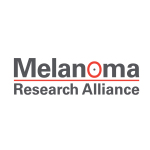WASHINGTON–(BUSINESS WIRE)–With the world’s attention focused on the response to COVID-19, the Melanoma Research Alliance (MRA) knows that long after this pandemic has ended, melanoma research will still be urgently needed. To this end, and in recognition of Melanoma Awareness Month, the Melanoma Research Alliance (MRA), the largest non-profit funder of melanoma research, is proud to announce funding for 26 research awards totaling $10.9 million.
“As many people begin to focus on how to safely reopen our communities, MRA is committed to a continued and robust pipeline of research that can eliminate pain and suffering due to melanoma,” says Debra Black, MRA co-founder and board chair. “We are delighted to invest in critical melanoma research during these difficult times.”
In addition to providing an influx of funding as researchers return to their labs, MRA research awards support innovative ideas having the potential to rapidly improve outcomes for patients with melanoma. Project goals are expansive, and include research aimed at validating the use of artificial intelligence to improve early melanoma diagnosis, exploring CAR-T Cell therapy as a future melanoma treatment option, and evaluating how best to combine surgery, radiotherapy, and systemic treatments to treat metastatic disease, including neoadjuvant approaches.
“This year, for the first time ever, we estimate that more than 100,000 people in the United States will be diagnosed with invasive melanoma,” says MRA Chief Science Officer Marc Hurlbert, PhD. “While our efforts over the last decade have reduced melanoma mortality rates we still must continue to advance research needed to improve outcomes for all patients facing melanoma.”
The 26 awards will support research at 23 institutions in five countries. The grants were vetted by MRA’s Grant Review Committee through a rigorous peer review process and confirmed by the MRA Board of Directors. Including the current awards, MRA has now invested over $122.5 million directly into research.
“Over the last decade, the impact of research has been transformational to patients facing melanoma. We have no doubt that these new awards will continue that momentum and bring us closer to achieving our mission of ending suffering and death due to melanoma,” said MRA President & CEO Michael Kaplan.
MRA’s grant awards are made possible through the significant contributions of individuals, families, institutions and corporate allies. Donors and partners providing financial support for 75% or more of an award are listed below within the named award.
2020 Grant Awards
Team Science Awards
Genomic instability in acral melanoma as a therapeutic vulnerability
The Black Family-MRA Team Science Award in Acral Melanoma
Boris Bastian M.D., Ph.D., The University of California, San Francisco
Overcoming upfront resistance to neoadjuvant CTLA-4 plus PD-1 blockade
MRA Team Science Award with Young Investigator supported by Amanda and Jonathan Eilian
Christian Blank M.D., Ph.D., Netherlands Cancer Institute
Evolution of metabolic and immune dysfunction in in-transit melanoma
The Black Family-MRA Team Science Award in In-Transit Melanoma
Greg Delgoffe Ph.D., University of Pittsburgh
Germline biomarkers of melanoma immunotherapy: an international consortium
Leveraged Finance Fights Melanoma-MRA Team Science Award
Tomas Kirchhoff Ph.D., New York University
AI-Augmented Melanoma Triage and Diagnosis: A Prospective Multi-Site Study
L’Oreal Dermatological Beauty Brands-MRA Team Science Award
Roberto Novoa M.D., Stanford University
IL13Ra2 Chimeric Antigen Receptor (CAR) T cells for Metastatic Melanoma
The Black Family-MRA Team Science Award, with YIA generously supported by the Sokoloff Family
Antoni Ribas M.D., Ph.D., The University of California, Los Angeles
Effective therapies for patients with high risk in-transit disease
MRA Team Science Award, with generous support from the Helman Family
Richard Scolyer M.D., Melanoma Institute Australia
Next-generation computational biomarker development for PD-(L)1 efficacy
BJ’s Wholesale Club-MRA Team Science Award
Janis Taube, M.D., Johns Hopkins University
Investigating melanoma metastases
MRA Team Science Award, Generously Supported by Rosetrees Trust
Samra Turajlic Ph.D., The Francis Crick Institute
The effects of age on tumor dormancy
MRA Team Science Award, collaboratively funded by Johns Hopkins University and Icahn School of Medicine at Mount Sinai
Ashani Weeraratna Ph.D., Johns Hopkins University
Targeting persister cell states that drive drug resistance and metastasis
Anna-Maria and Stephen Kellen Foundation – MRA Team Science Award
Richard White M.D., Ph.D., Memorial Sloan Kettering Cancer Center
Young Investigator Awards
Loss of CD226 in T cells drives resistance to melanoma immunotherapy
Bristol-Myers Squibb – MRA Young Investigator Award
Tobias Bald Ph.D., QIMR Berghofer Medical Research Institute
Identification of Druggable Transcriptional Drivers in Melanoma
MRA Young Investigator Award, collaboratively funded by Massachusetts General Hospital
Liron Bar-Peled Ph.D., Massachusetts General Hospital
Understanding Immunotherapy-Tolerant Melanoma Persister Cells
Bristol-Myers Squibb – MRA Young Investigator Award
Matthew Hangauer Ph.D., University of California, San Diego
Activating dsRNA sensing in melanoma to overcome immunotherapy resistance
Bristol-Myers Squibb – MRA Young Investigator Award
Jeffrey Ishizuka M.D., Ph.D., Yale University
Targeting interactions between melanoma metabolism and radiation therapy
MRA Young Investigator Award, collaboratively funded by Emory University
Aparna Kesarwala M.D., Ph.D., Emory University
Examining the role of blebs in melanoma metastasis
MRA Young Investigator Award in memory of Leon Sapsuzian, Jr.
Jeremy Logue Ph.D., Albany Medical College
Microenvironmental Regulators of Melanoma Brain Metastases
MRA Young Investigator Award
Berta Lopez Sanchez-Laorden Ph.D., Universidad Miguel Hernandez de Elche
Targeting 1-Carbon Metabolism in Melanoma Brain Metastases
Tara Miller Melanoma Foundation – MRA Young Investigator Award
Michael Pacold M.D., Ph.D., New York University
Ablative radiotherapy as consolidation for oligoprogressive melanoma
ASTRO-MRA Young Investigator Award in Radiation Oncology
Reid Thompson M.D., Ph.D., Oregon Health & Science University
The impact of tumor progression trajectory on immunotherapy treatment
Michael and Jacqueline Ferro Family Foundation – MRA Young Investigator Award
Lixing Yang Ph.D., The University of Chicago
Pilot Awards
Sensitizing melanoma to immunotherapy with novel DNA hypermethylating drugs
MRA Pilot Award
Alfonso Bellacosa M.D., Ph.D., The Research Institute of Fox Chase Cancer Center
Histone variant regulation of the melanoma immune microenvironment
Hess Foundation – MRA Pilot Award
Emily Bernstein Ph.D., Icahn School of Medicine at Mount Sinai
Targeting immune inhibitory gene transcription to reverse T cell exhaustion
MRA Pilot Award
Linda Bradley Ph.D., Sanford Burnham Prebys Medical Discovery Institute
Tandem cytokine delivery with non-replicating herpes viral vectors
MRA Pilot Award
Stephanie Dougan Ph.D., Dana-Farber Cancer Institute
Uncovering Nodes of Convergence of Targeted and Immune Therapy in Melanoma
Hess Foundation – MRA Pilot Award
Poulikos Poulikakos Ph.D., Icahn School of Medicine at Mount Sinai
About Melanoma Research Alliance (MRA)
Founded in 2007 under the auspices of the Milken Institute, with the generous support of Debra and Leon Black, the Melanoma Research Alliance exists to accelerate treatment options and find a cure for melanoma. As the largest nonprofit funder of melanoma research, it has dedicated over $122.5 million and leveraged an additional $205 million towards its mission. Through its support, MRA has championed revolutions in immunotherapy, targeted therapies, novel combinations and diagnostics. Due to the ongoing support of its founders, 100 percent of donations to MRA go directly to its melanoma research program. MRA’s ability to fund wide-ranging research in melanoma is amplified by unique collaborations and partnerships with individuals, private foundations, and corporations. Visit http://www.CureMelanoma.org for more information.
Contacts
Cody R. Barnett, Director of Communications
M: (717) 880-7100
E-mail: cbarnett@curemelanoma.org
Anreder & Company
917.923.7011
Steven S. Anreder — steven.anreder@anreder.com
Michael Wichman — michael.wichman@anreder.com






